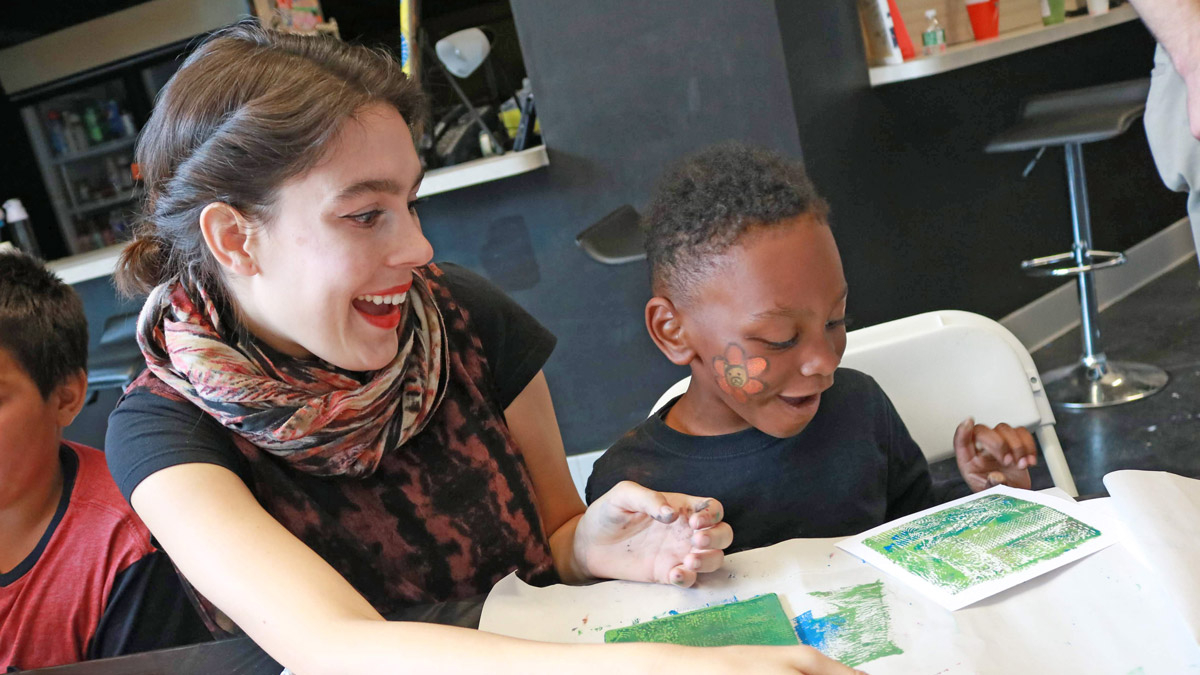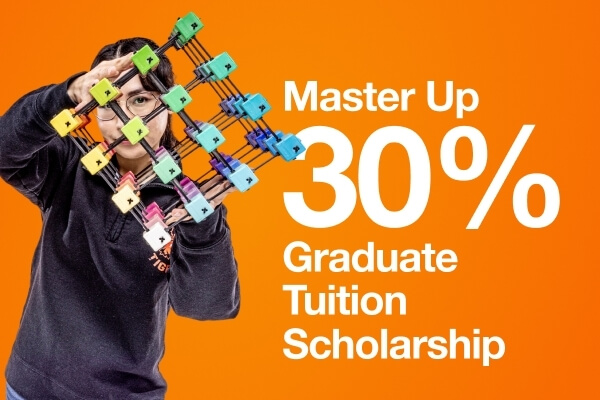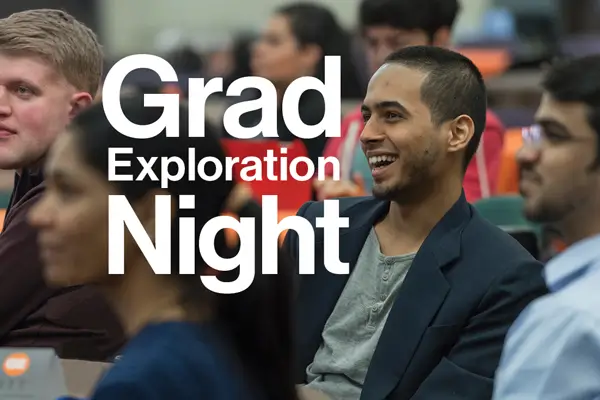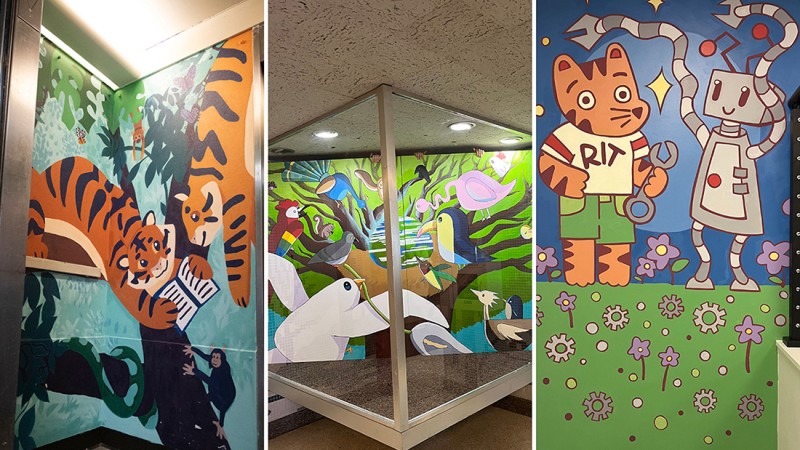Visual Arts–All Grades (Art Education) Master of Science for Teachers Degree

Visual Arts–All Grades (Art Education)
Master of Science for Teachers Degree
- RIT /
- Rochester Institute of Technology /
- Academics /
- Visual Arts–All Grades (Art Education) MST
Overview for Visual Arts–All Grades (Art Education) MST
When does an artist become a teacher? The MST in visual arts-all grades (art education) prepares you to teach the next generation of artists and to create art experiences while honing your own artistic skills.
An Accelerated Visual Arts Education Program
RIT's art education master's degree is an accelerated visual arts education program. You will get a year of hands-on experience that will heavily mirror your life as an art educator. The program prepares you for a teaching career by embedding certifications and job placement support right into the curriculum. You will work with regional schools to find the best fit for your personality, talents, and teaching goals.
RIT's Art Education Master's Degree
In the MST degree, you'll complete course work in:
- child development in art and education,
- differentiated learning techniques for effective instruction in the diverse learning needs of all students,
- a range of perspectives on multicultural issues in the visual arts and education fields,
- the process of teaching art in the school classroom, including curriculum development and student assessment, and
- explore a range of perspectives on contemporary theories in art and education.
In addition, you will complete a student teaching practicum designed to provide you with in-depth pedagogical experiences, real-world challenges, and rich learning opportunities.
RIT’s art education master’s degree leads to Initial/Professional New York State certification in visual arts for PK through 12th grades. This certification allows applicants to teach in New York State public schools and most other states through reciprocal agreements. The program features pedagogical studies, studio inquiry, clinical fieldwork, and community partnerships. The MST program prepares candidates to meet the national, state, and regional needs of teachers of the visual arts. Curriculum and experiential learning are designed to provide candidates opportunities to teach effectively with positive impacts on diverse PK through 12 grade student learning and development, through the application of content knowledge, foundational pedagogical skills, and technology integration. The program is nationally accredited and is for candidates who hold a BFA or BA in an area of art (studio, design, new media, or photography majors). Graduates of the last three MST classes have a 97 percent pass rate on the New York State Department of Education certification examinations, initial certification, and job outcome rates.
-
Affordable Now. Valuable for Life.
Earn your master’s degree without the full price tag. With Master Up you can receive a 30% tuition scholarship for an RIT master’s degree.
-
Meet us on-campus on February 19
Learn about the programs that interest you. Hear from program faculty, speak with current graduate students, and ask the questions that will help you get one step closer to your career goals.
Careers and Salary Info
Typical Job Titles
| Art Teacher | Art Instructor | Art Specialist |
| Art Professor | Arts and Crafts Instructor | Arts Administrator |
| Education Director | Visual Arts Educator |
Featured Work and Profiles
-
Making family visitor kits for George Eastman Museum
Students in the visual arts-all grades MST program packaged together tangible props that allow children and families to more deeply engage with exhibits at the world-renowned photography and film...
Read More about Making family visitor kits for George Eastman Museum -
Aiding mural creation
MST candidates worked with fourth-graders at Pinnacle School No. 35 to generate ideas for what became a mural at the entrance of their school.
Read More about Aiding mural creation -
Community event: art club takeover
The visual arts-all grades MST program partnered with the Rochester City School District to organize a three-day art club takeover.
Read More about Community event: art club takeover -
Helping the Flower City bloom with creativity
RIT's visual arts-all grades MST program regularly hosts free arts and crafts events for the local community.
Read More about Helping the Flower City bloom with creativity -
Art teacher by day, artist by night
Mandi Antonucci '04 Learn about the colorful world of Mandi Antonucci '04, high school art teacher in the Batavia City School District.
Read More about Art teacher by day, artist by night -
From Kiln Room to Classroom
After 20 years as a nationally-exhibiting ceramic artist, Adam Spector called a career audible and enrolled in RIT's MST program to become an art educator.
Read More about From Kiln Room to Classroom
Curriculum for 2025-2026 for Visual Arts–All Grades (Art Education) MST
Current Students: See Curriculum Requirements
Students are also interested in
Admissions and Financial Aid
This program is available on-campus only.
| Offered | Admit Term(s) | Application Deadline | STEM Designated |
|---|---|---|---|
| Full‑time | Fall | Rolling | No |
| Part‑time | Fall | Rolling | No |
Full-time study is 9+ semester credit hours. Part-time study is 1‑8 semester credit hours. International students requiring a visa to study at the RIT Rochester campus must study full‑time.
Application Details
To be considered for admission to the Visual Arts–All Grades (Art Education) MST program, candidates must fulfill the following requirements:
- Complete an online graduate application.
- Submit copies of official transcript(s) (in English) of all previously completed undergraduate and graduate course work, including any transfer credit earned.
- Hold a baccalaureate degree (or US equivalent) from an accredited university or college. A minimum cumulative GPA of 3.0 (or equivalent) is recommended.
- Submit a current resume or curriculum vitae.
- Submit a personal statement of educational objectives.
- Submit two letters of recommendation.
- Entrance exam requirements: None
- Submit a portfolio. View portfolio requirements.
- Submit English language test scores (TOEFL, IELTS, PTE Academic, etc.), if required. Details are below.
English Language Test Scores
International applicants whose native language is not English must submit one of the following official English language test scores. Some international applicants may be considered for an English test requirement waiver.
Duolingo (DET): 120
IELTS: 6.5
LanguageCert Academic: 70
PTE Academic: 56
TOEFL: 79
International students below the minimum requirement may be considered for conditional admission. Deaf and hard-of-hearing test takers with significant hearing loss do not need to take the listening and speaking sections for the TOEFL and IELTS. Each program requires balanced sub-scores when determining an applicant’s need for additional English language courses.
How to Apply Start or Manage Your Application
Cost and Financial Aid
An RIT graduate degree is an investment with lifelong returns. Graduate tuition varies by degree, the number of credits taken per semester, and delivery method. View the general cost of attendance or estimate the cost of your graduate degree.
A combination of sources can help fund your graduate degree. Learn how to fund your degree
Accreditation
Related News
-
December 4, 2025

RIT grad students inspire young minds at School Number 5
WHAM-TV features the interactive art stations set up by students in RIT's visual arts for all ages master's program.
-
December 4, 2025

RIT education students bring holiday cheer to School No. 5 with arts and crafts ‘takeover’
WHEC-TV speaks to students in RIT's master's in visual arts for all ages about the importance of giving back to the community.
-
September 24, 2025

New School of Film and Animation director, faculty roles for 2025-26
Ricky Figueora taking over as the new director of RIT's School of Film and Animation headlines exciting promotions and additions to the College of Art and Design faculty.
Contact
- Bethany Iraci-McBane
- Assistant Director, Graduate Admissions
- Office of Graduate Admissions
- Enrollment Management
- 585‑475‑5235
- bimges@rit.edu
- Lauren Ramich
- Senior Lecturer
- School of Art
- College of Art and Design
- 585‑475‑7140
- larfaa@rit.edu
School of Art




















